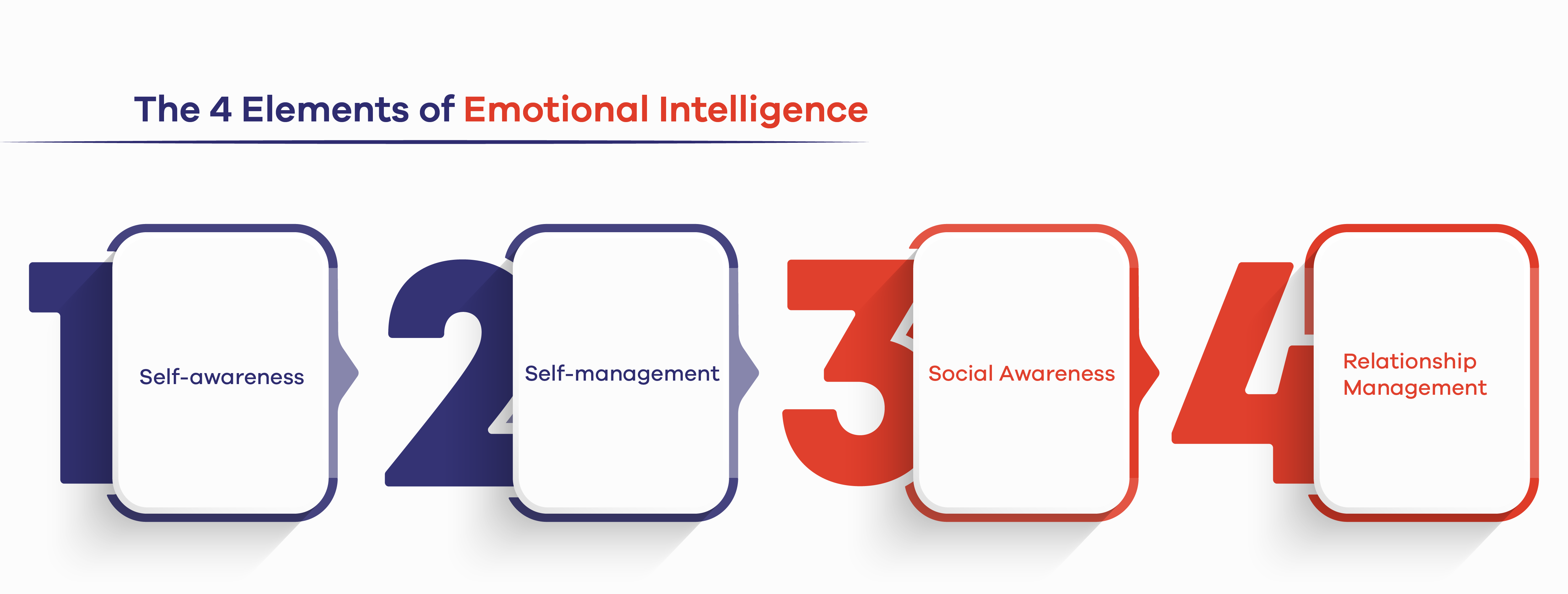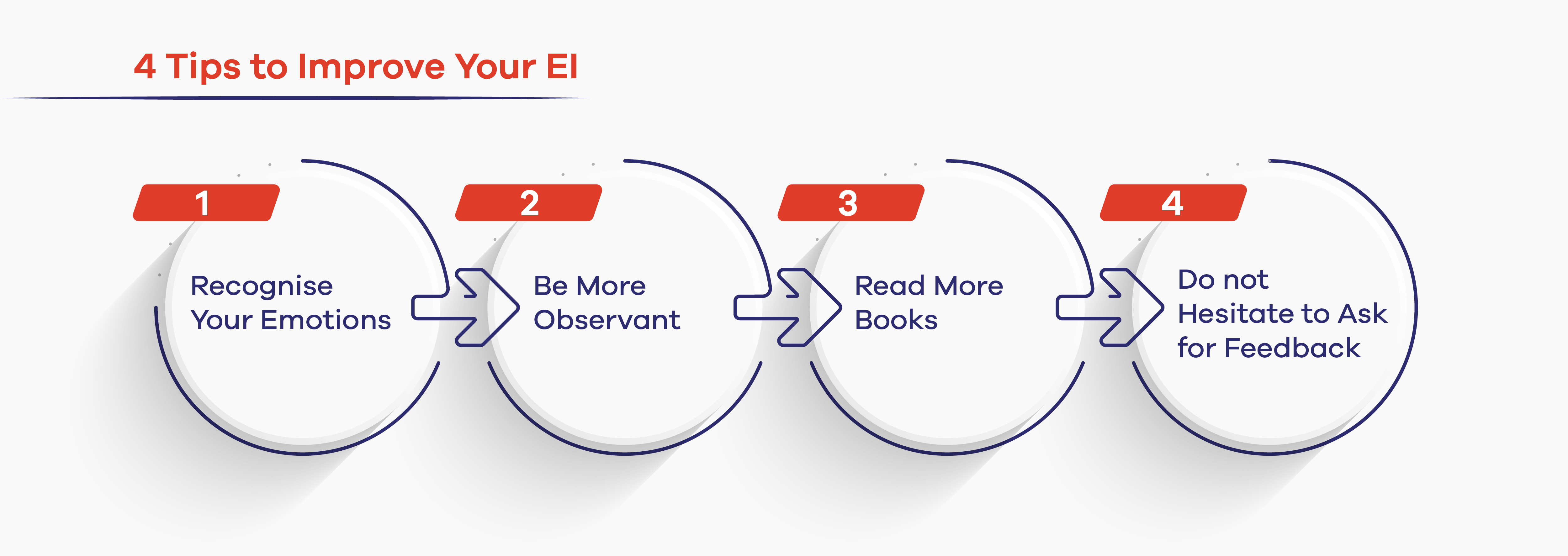Can You Improve Your Emotional Intelligence?

There are some specific skills your university will not teach, emotional intelligence (EI), for instance. Yet, that does not mean that this skill is not important. Emotional Quotient (EQ) can give you an edge in your academics. Better than that, having excellent EQ can set you up for success in your future career. Now here are the big questions; what is the meaning of EI, and is it possible to improve it? If yes, what techniques should you use? Let’s find it!
Know More About Emotional Intelligence
Emotional Intelligence (EI) is basically the ability to perceive, use, understand, manage, and handle emotions. A high EI means you can express and control your emotions. At the same time, you can understand and respond to others’ emotions. Experts said that EI is the emotional version of IQ (Intelligence Quotient). The interesting thing is that many experts said that EQ is more helpful than IQ, when it comes to helping students achieve their success.
The 4 Elements of Emotional Intelligence
EI comes in 4 essential elements or subcategories with each of them having its own characteristics. Let’s break it down!
Self-awareness
Self-awareness is your own ability to recognise your feelings and emotions. To achieve self-awareness, you must pay more attention to the impact of others’ behaviours to your emotional state. Most importantly, you should also identify your own behaviours toward others and how those behaviours impact them.
Self-management
The main concept of self-management is checking your emotions to achieve self-control. In addition, it also involves how you respond in moments of change. This element correlates with being in sync with your values and standing behind them. This way, you can express your ideas and beliefs clearly.

Social Awareness
Social awareness means you are focusing on other people’s feelings and understanding them. It means you can read the situations while actively listening to what others say. Moreover, social awareness signifies that you care what others are going through. Plus, it shows that you are being an active participant in a discussion.
Relationship Management
Relationship management highlights how you have a good relationship with people. In addition, it focuses on how you operate when conflict arises. To create and manage good relationships, you must be able to clearly communicate and being empathetic towards others.
Based on the 4 elements above, you can say that you are emotionally intelligence if you have the traits below.:
- You can recognise others’ feelings and feel empathy
- An ability to accept, adjust, and embrace change
- You have a strong sense of curiosity and sensitivity about others’ feelings
- Self-confidence and self-acceptance
- You know your personal strengths and limitations
- You can handle your emotions during inconvenient situations
4 Tips to Improve Your Emotional Intelligence (EI)
Improving your emotional intelligence is an ongoing process. Of course, the journey differs from person to another. Nonetheless, you can try following the four tips below to improve your EI.
1. Recognise Your Emotions
The first thing you must do to improve your emotional intelligence is recognising your emotions.
To make this step easier, you can ask some questions to yourself, such as:
- What emotions are you feeling right now?
- Every time you feel stress with a problem, what emotions typically arise?
- What can you do to respond in frustrating problems or situations?
If you can take a moment to recognise your emotions and temper your reactivity, you can step toward emotional intelligence. Even better, if you can manage your emotions, you can then solve any problem and handle situations properly.
2. Be More Observant
We know that everyone might get busy with their own life. In this context, you might sometimes fail to notice the subtle emotional cues that others are projecting. To improve your emotional intelligence, you must be more observant. You should be on the lookout for small clues that might indicate the emotional turmoil of people around you.

3. Read More Books
Many studies show that reading books or literature with various complex characters can improve empathy. In fact, by reading stories from other people’s perspective, you can gain insight into their thoughts, motivations, and actions. As a result, this activity will help to enhance your social awareness.
4. Do not Hesitate to Ask for Feedback
You can always audit your self-perception by asking your classmates and family. Remember that you should ask those who engage with you almost every day. The main thing is, of course, ask them how they would rate your emotional intelligence.
For example, you can ask them some questions, such as:
- How you respond to difficult situations
- How adaptable or empathetic you are with others
- How well you handle conflict, especially with family, friends, or classmates
Keep in mind that their feedback may not always be what you want to hear. However, it will often be what you need to hear. Why?
From the feedback you receive, you can then recognise your strengths and weaknesses. Eventually, you can improve yourself to be a better person with better empathy for others.
Wrapping Up
Without any doubt, being emotionally intelligent gives you an edge in your academics. Better than that, having excellent EQ can set you up for success in your future career. At MAJU (Muhammad Ali Jinnah University), you will meet with classmates from diverse backgrounds. Hence, by working as a team and involving with students’ clubs, you can improve your emotional intelligence. As a result, you will be ready to enter the dynamic business world today.
Tag:MAJU, Emotional intelligence, EQ, IQ, EI



